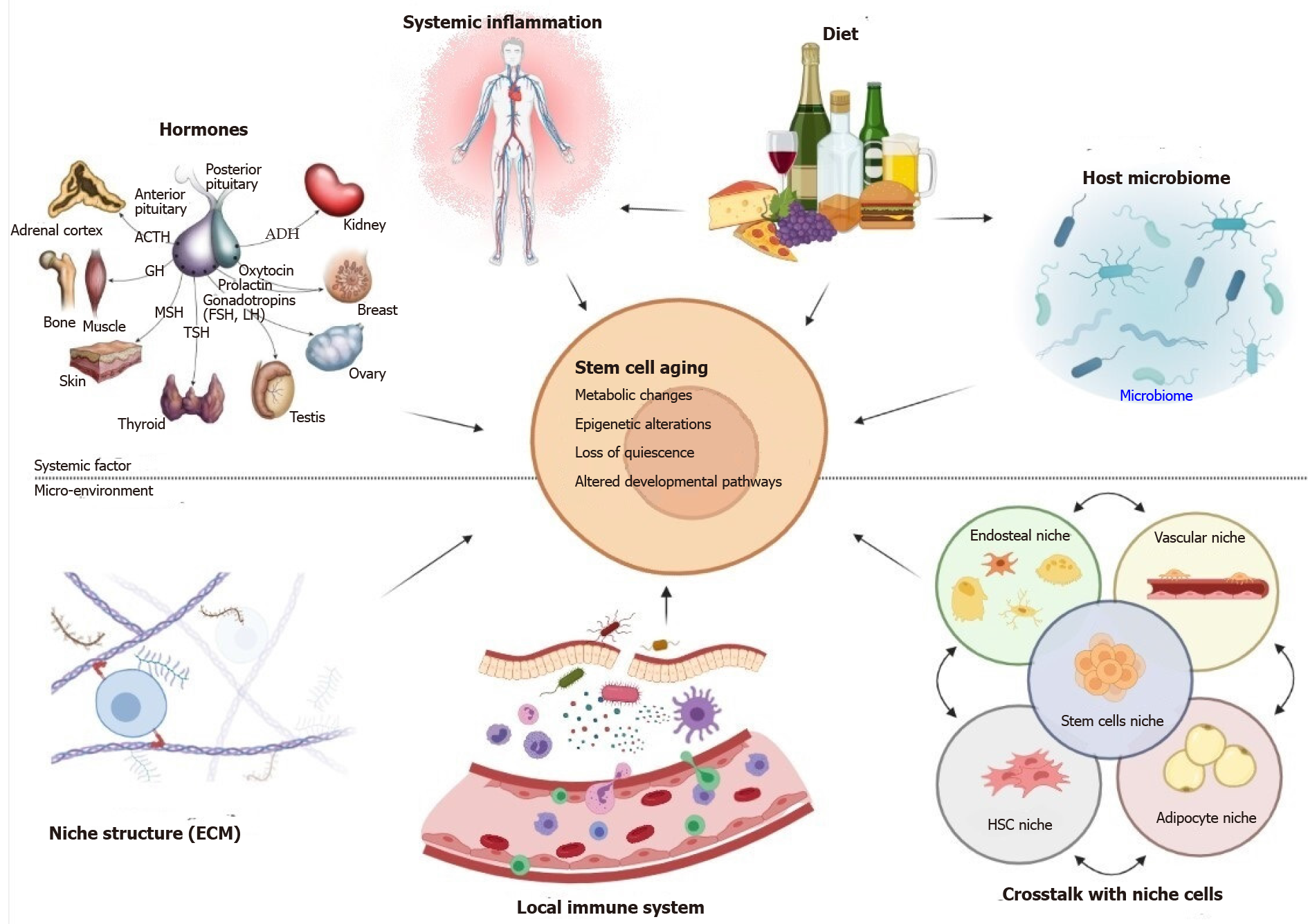Copyright
©The Author(s) 2021.
World J Stem Cells. Nov 26, 2021; 13(11): 1714-1732
Published online Nov 26, 2021. doi: 10.4252/wjsc.v13.i11.1714
Published online Nov 26, 2021. doi: 10.4252/wjsc.v13.i11.1714
Figure 1 During the aging process, systemic influences and changes in the local microenvironment have an effect on stem cell activity.
Changes in systemic signals that control stem cell activity in multiple compartments are caused by a combination of physiological changes in hormone levels, increased inflammation, and the interplay between diet and the host microbiome. Locally, changes in the cellular and molecular composition of the stem cell niche caused by aging cause stem cells to be stimulated abnormally, influencing their quiescence, metabolism, and differentiation ability. Extrinsic signals often cause epigenetic modifications in stem cells, which may result in the aberrant reactivation of developmental pathways. ACTH: Adrenocorticotropin hormone; ADH: Antidiuretic hormone; GH: Growth hormone; MSH: Melanocyte-stimulating hormone; TSH: Thyroid-stimulating hormone; FSH: Follicular-stimulating hormone; LH: Luteinizing hormone; ECM: Extracellular matrix; HSC: Hematopoietic stem cell.
- Citation: Picerno A, Stasi A, Franzin R, Curci C, di Bari I, Gesualdo L, Sallustio F. Why stem/progenitor cells lose their regenerative potential. World J Stem Cells 2021; 13(11): 1714-1732
- URL: https://www.wjgnet.com/1948-0210/full/v13/i11/1714.htm
- DOI: https://dx.doi.org/10.4252/wjsc.v13.i11.1714









